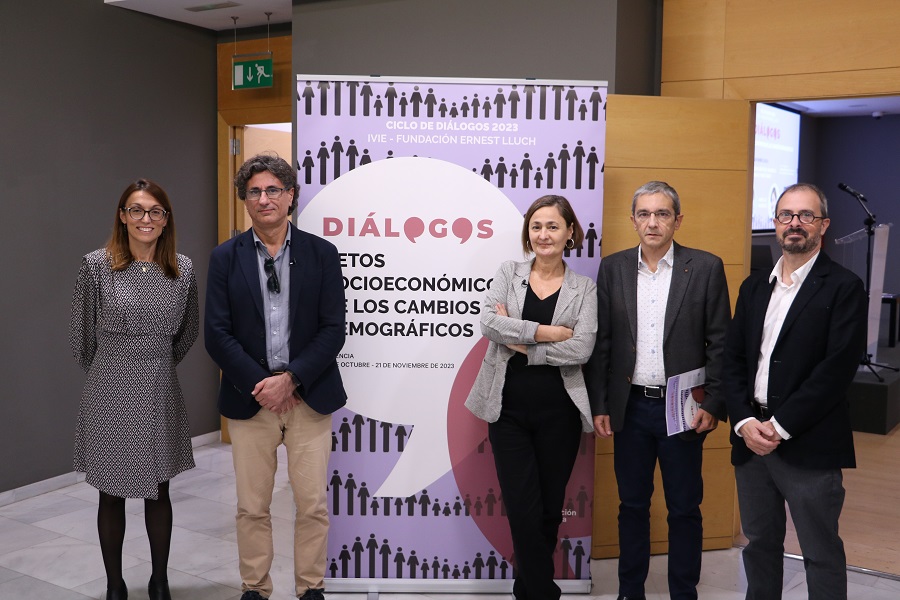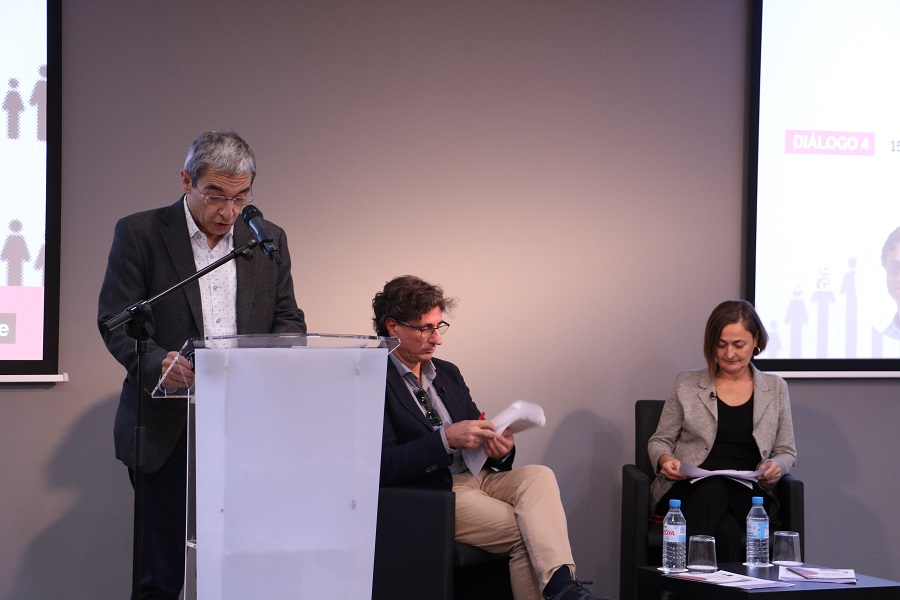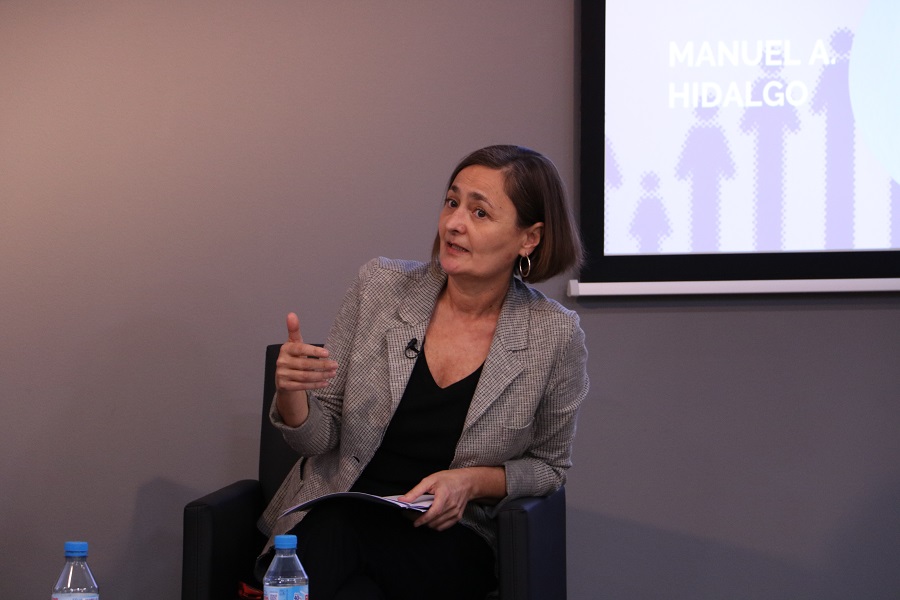Esta web utiliza cookies para que podamos ofrecerte la mejor experiencia de usuario posible. La información de las cookies se almacena en tu navegador y realiza funciones tales como reconocerte cuando vuelves a nuestra web o ayudar a nuestro equipo a comprender qué secciones de la web encuentras más interesantes y útiles.
News

"The issue of aging in the workforce is far more urgent in the Public Administration"
Hidalgo and Rodríguez examined the effects of demographic change on the labor market in the 4th dialogue of the series “Socioeconomic challenges of demographic change”
“Will there be enough work for everyone?” This was the question that introduced the 4th dialogue of the series Socioeconomic challenges of demographic change organized by the Ivie and the Ernest Lluch Foundation, in which Manuel A. Hidalgo, Professor of Economics at the Pablo de Olavide University and Senior Fellow at EsadeEcPol, and María Luz Rodríguez, Professor of Labor Law and Social Security at the University of Castilla-La Mancha, discussed the challenges posed by demographic change in the labor market.
As of today, more than 54% of the total working age people in Spain are over the age of 40. Thus, the question that really needs to be addressed, according to the speakers, is whether or not we will have enough workers to fill all of these jobs once this group retires. According to María Luz Rodríguez, the problem is far more urgent in the public administration than in the private sector, since the entire generation of civil servants who joined during the transition will be retiring in a few years.
To fill these jobs, the two speakers agreed that “we cannot lose these older workers, but we must train them continuously so that they can adapt to the new requirements of the labor market”. In the opinion of the experts, one of the strategies to avoid the loss of assets in the labor market is by offering benefits like reduced workdays beyond a certain age, in order to continue counting on the value of their accumulated experience. They also stressed the importance of continuous training for the workers themselves, which only 20% of companies in Spain carriy out.
At the same time, the speakers stressed the need to enhance education in order to produce the maximum number of highly qualified young people. “Rather than focusing on the unemployment rate of young people aged 16 to 19, which reaches 40% and affects our rates in Eurostat, we should be more concerned that these young people are not in school”, said Rodriguez.
In this regard, they concurred that the only way to supply the skilled workers that the current labor market needs and that are frequently unfilled is through training. “We need an education system that is agile, focusing on the needs of the productive fabric and with digital competencies,” insisted Hidalgo.
In addition to strengthening our labor market with older and young people, the two speakers spoke of the need to include more women in the workforce. “There are currently 9 million women who are inactive in Spain, far more than the European average. We need to consider what model of jobs and conciliation are needed for women to join the labor market on an equal basis with men and not give up work to look after their families,” stressed the professor from the University of Castilla-La Mancha. In this sense, certain governmental measures are required to keep women from abandoning their ambition to be an active part of the work force.
Another labor force that will be essential is that which comes to Spain through immigration, according to the speakers. In an aging society with a low birth rate, foreign labor is vital to fill jobs and contribute to the generation of wealth. However, Rodriguez pointed out that an “orderly immigration” is necessary to prevent inequalities brought about by the precarious conditions offered to many immigrants. According to Hidalgo, this change is beginning to be seen, since there is “a new type of immigration” of qualified people who are entering the technology sector.
In sum, the dialogue concluded with the idea that the labor market in Spain will require both native-born workers and foreigners.







